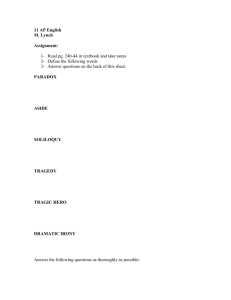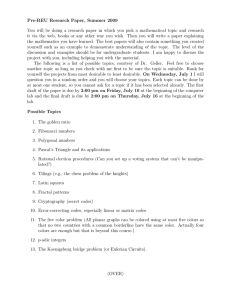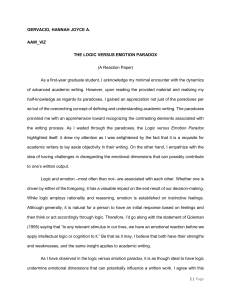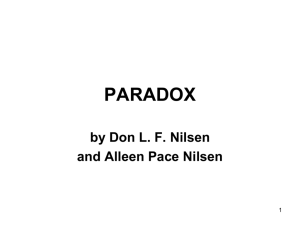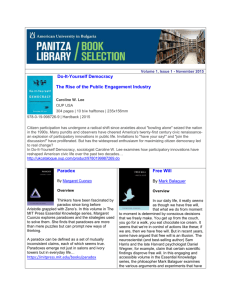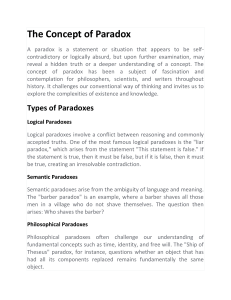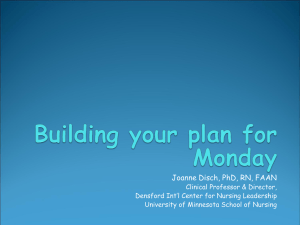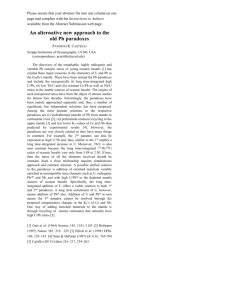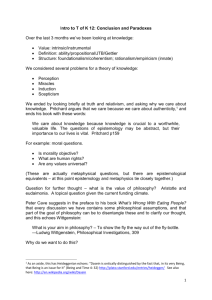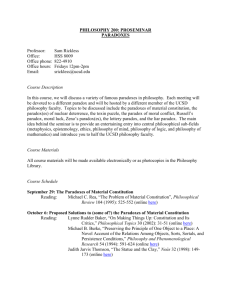Social Progress and Social Problems Toward a Sociology of Gloom
advertisement
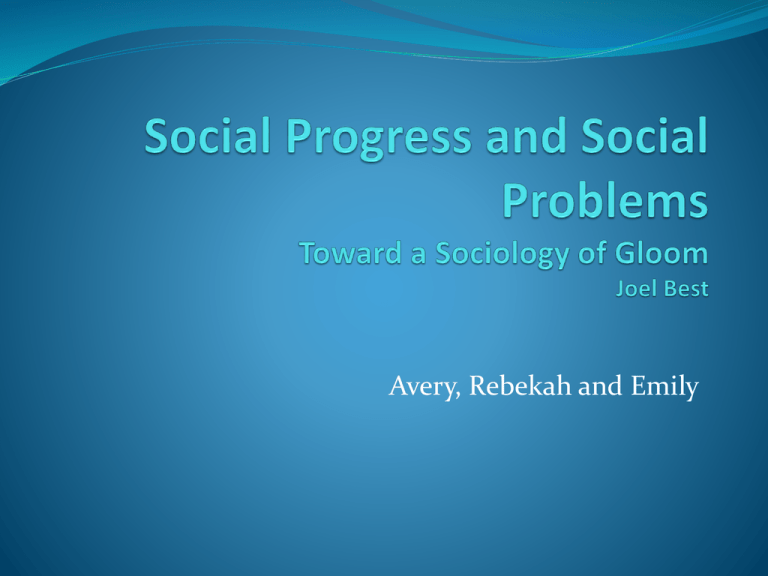
Avery, Rebekah and Emily The 4 Paradoxes Paradox of Perfectionism 1. Perfectionism must be grounded in optimism, it fosters pessimism Can be seen all through American history Puritans: not only wanted a new form of government but an ideal form Social Reform & Utopian Experiments Social problems became emergencies Social progress encourages us to be obsessed with perfectionism, which is unrealistic, making us always fall short of our goal The 4 Paradoxes 2. Paradox of Proportion Solving big problems makes formerly small problems seem larger Can be seen with fatal disease 100 years ago infectious disease was leading cause of death (influenza, tuberculosis, measles, etc.) Now these diseases are under control, our attention turns to other less common (diabetes, breast cancer, etc.) Formerly overshadowed by infectious diseases, these once thought of as minor diseases consume all our attention Can be seen with illiteracy as well Social progress makes us obsess with problems that were never thought of as major The 4 Paradoxes 3. Paradox of Proliferation Social progress encourages the recognition of a larger number of problems Can be seen with television Magazines Internet Social progress has allowed an increase in situations where people can create and talk about social problems The 4 Paradoxes 4. Paradox of Paranoia Social progress fosters fears of social collapse Can be seen with education Until recently, a child who didn’t do well is school and left to work on a farm or in a factory Today we fear leaving school early leads to poverty We worry about “schools that fail to teach” Drinking water Technology We’ve raised our standards Social progress has lead us to rely on large, intertwined systems of institutions and we fear of institutional collapse The REAL problem These paradoxes that Best points out hinders our societies progress with the new problems that the paradoxes present We must realize how far our society has come and to appreciate it instead of creating new problems for ourselves Discussion Questions
